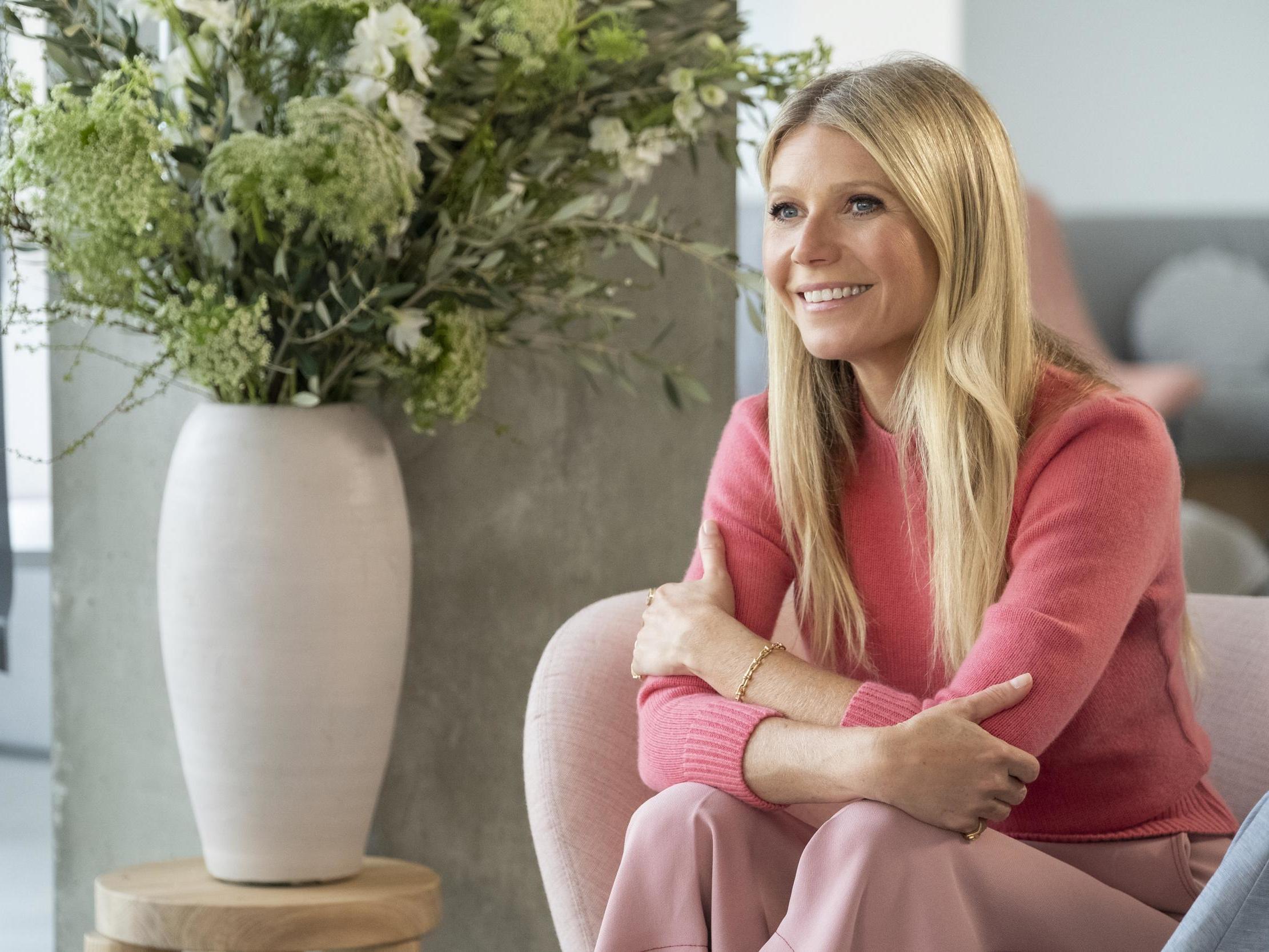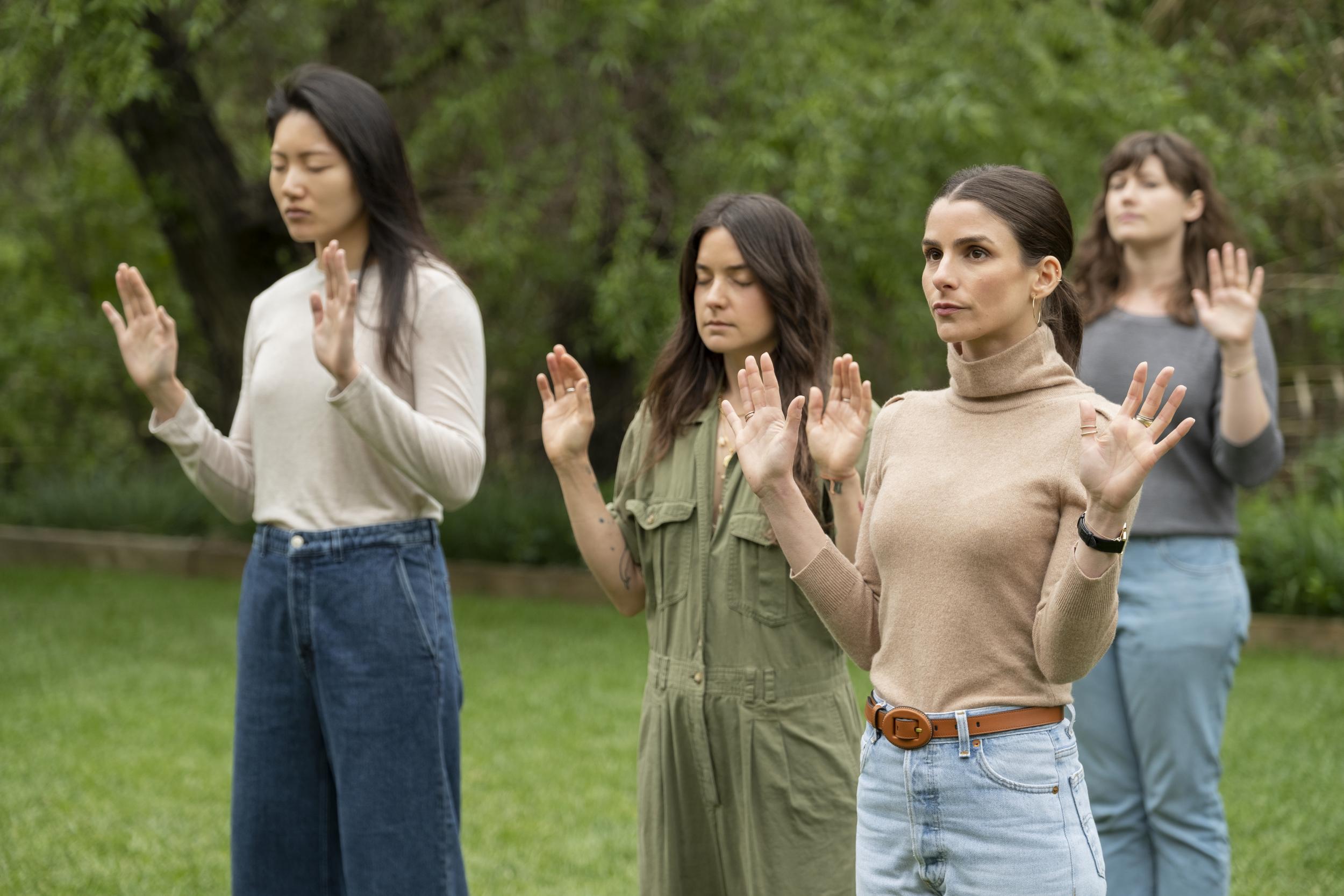The Independent's journalism is supported by our readers. When you purchase through links on our site, we may earn commission.
The Goop Lab: Gwyneth Paltrow’s Netflix show goes beyond vagina candles in bizarre pursuit of new-age wellness
Beware the pseudoscience that promises women perfection, says Olivia Petter


Your support helps us to tell the story
From reproductive rights to climate change to Big Tech, The Independent is on the ground when the story is developing. Whether it's investigating the financials of Elon Musk's pro-Trump PAC or producing our latest documentary, 'The A Word', which shines a light on the American women fighting for reproductive rights, we know how important it is to parse out the facts from the messaging.
At such a critical moment in US history, we need reporters on the ground. Your donation allows us to keep sending journalists to speak to both sides of the story.
The Independent is trusted by Americans across the entire political spectrum. And unlike many other quality news outlets, we choose not to lock Americans out of our reporting and analysis with paywalls. We believe quality journalism should be available to everyone, paid for by those who can afford it.
Your support makes all the difference.Gwyneth Paltrow wants you to be better. At least, that’s the premise of her entire Goop empire, and the new six-part Netflix series based on it.
The Goop Lab, which lands on the streaming platform on Friday, offers an insight into Paltrow’s infamous lifestyle brand that sells 24-carat gold vibrator necklaces and candles that smell like vaginas – yes, really. Goop also offers advice on everything from travel and beauty to food and fashion, with recent blog posts titled “my clean deodorant obsession” and “what does your astrological birth chart say about you?”
Aside from asking customers to cough up (a lot) of cash, Goop is perhaps best known for making medical claims about products like “health-giving” stones (£76) or “detoxing” jade vaginal eggs (£50), both of which saw the brand reported to both the National Trading Standards and Advertising Standards Authority in the UK. In California Goop had to pay a settlement of £112,500 over the “unfounded” claims. The company also came under fire for advocating vaginal steaming, a treatment that — when one woman tried it herself at home — resulted in second-degree burns.
All things considered, it’s safe to say that anyone who decides to enter Paltrow’s Goop Lab will do so with scepticism. Netflix is clearly aware of this, which is why every episode begins with a disclaimer that it is “to entertain and inform” as opposed to providing medical advice. It also urges viewers to consult a doctor prior to undertaking any kind of personal health treatment. But the warning conflicts with the 30-minute episodes that follow it. Perhaps in spite of themselves, Netflix has become complicit in selling us the “Gooped” woman.
The series sees Paltrow and her staff testing out various offbeat wellness trends, from cold therapy to energy healing. It sounds simple enough, but viewers will undoubtedly raise eyebrows when they see that the former requires you to dance around in the snow and swim in sub-zero waters while the latter involves writhing around on a table while a man moves his hands over your body making animal noises.
Elsewhere in the series, we see the team doing psychic readings and testing out the growing use of psychedelics in therapy by taking magic mushrooms in Jamaica. The show encourages viewers to ask questions like: “How can I better understand my place in the universe?” and “Is that Goop editor having an orgasm, or an exorcism?”
Those waiting to watch Paltrow herself dive deep into the weird and wonderful world she swears by will be disappointed. The majority of activities are undertaken by her brave staffers, who one sincerely hopes are paid highly. The most obscure challenges Paltrow undertakes on the show are a five-day fasting diet and a vampire facial. The latter prompts Paltrow to criticise people who “shoot a lot of weird s*** into their face”. It is not clear whether or not she knows her own blood is being injected into hers.

The vampire facial and the fasting diet are both undertaken by the Hollywood actor in a bid to reduce her biological age, which apparently we too should aspire towards if we want to “Goop” ourselves. At the end of the episode, we’re told Paltrow has successfully shaved three years off her appearance. Everyone on screen cheers.
Not only does the peddling of Goop products feel like yet another frustrating way of society forcing female spending in return for self-improvement but it also makes for uneasy viewing when Paltrow teases a pre-packaged diet saying, “you guys make me do the craziest s***” when her (mostly-female) staff have already sobbed, screamed and flashed their genitals on camera.
One of Paltrow’s fiercest critics, gynaecologist Dr Jen Gunter, describes the series as “classic Goop”. “I couldn’t handle episode four as it starts with Paltrow complaining about how hungry she is because she is fasting,” she tells The Independent.
“Most of the show is heavy on pseudoscience or, quite frankly, scams, but there is a little bit of good information tucked in there. It is up to the viewer to distinguish which is which.”
The point of all of this, Paltrow says, is the “optimisation of self”. It is by paying oodles of money for obscure treatments with little to no scientific evidence that we can achieve an idealised state of womanhood. At least, that is what this show’s overriding message seems to be.
That said, there are moments of great value in the series, particularly the conversations with renowned sex educator Betty Dodson, who encourages women to take a closer look at their vulvas on screen in the hope of reducing some of the stigma attached to female orgasms and sexual health. And the treatments we see on the programme do seem to work for some of the participants, with one Goop editor claiming her anxiety was alleviated after she swam in freezing cold Lake Tahoe with Dutch athlete Wim Hof. Meanwhile, we see psychic Laura Lynne Jackson conduct a scarily accurate reading of one of Netflix’s camera women, which is compelling (despite the fact she was supposed to be reading Goop’s food editor).
The programme also includes various case studies from people who have reportedly benefited from the treatments it trials. But just how revelatory is it that some of these bizarre treatments work for some people? And not just regular people, people who either work for the company promoting the lifestyle these treatments are a core part of, or have presumably been paid a hefty sum by Netflix to share their story? Where’s the data? Where’s the research? Where is the science?
Paltrow is no fool. And given that Goop is a million-dollar company - its most recent valuation was $250 million (£190 million), according to The New York Times - one can’t help but feel she is having the last laugh when she manages to flog psychic vampire repellent for $26 (£19), or convince legions of fans to put jade eggs into their vaginas knowing that, if you lose the added string, the only way to get them out is to lay them. It might be expensive and supported by as much science as Paltrow decides on the day, but it seems that there’s plenty of fun to be had in telling the world to go Goop yourself. Just, perhaps consult a real GP first.
The Goop Lab will be available to watch on Netflix from Friday 24 January.
Join our commenting forum
Join thought-provoking conversations, follow other Independent readers and see their replies
Comments